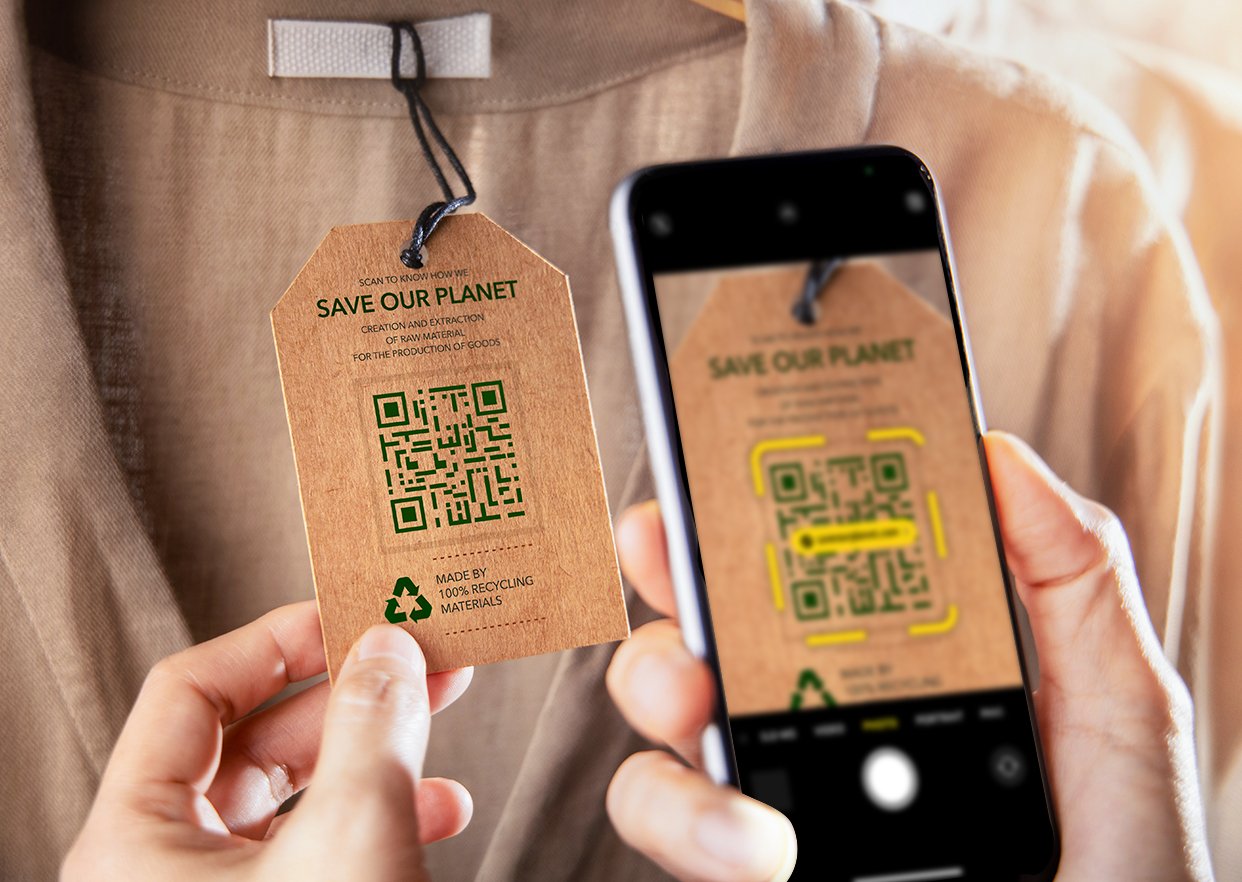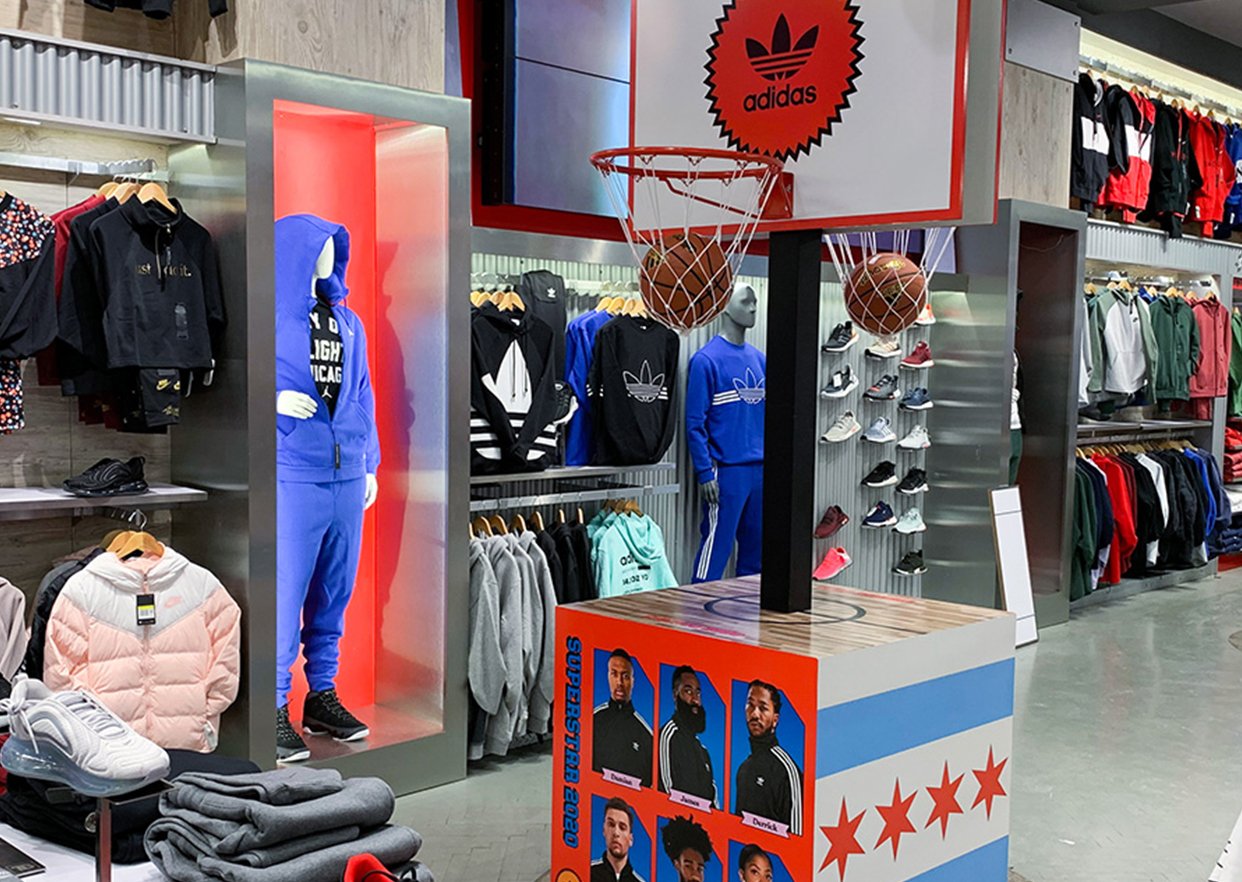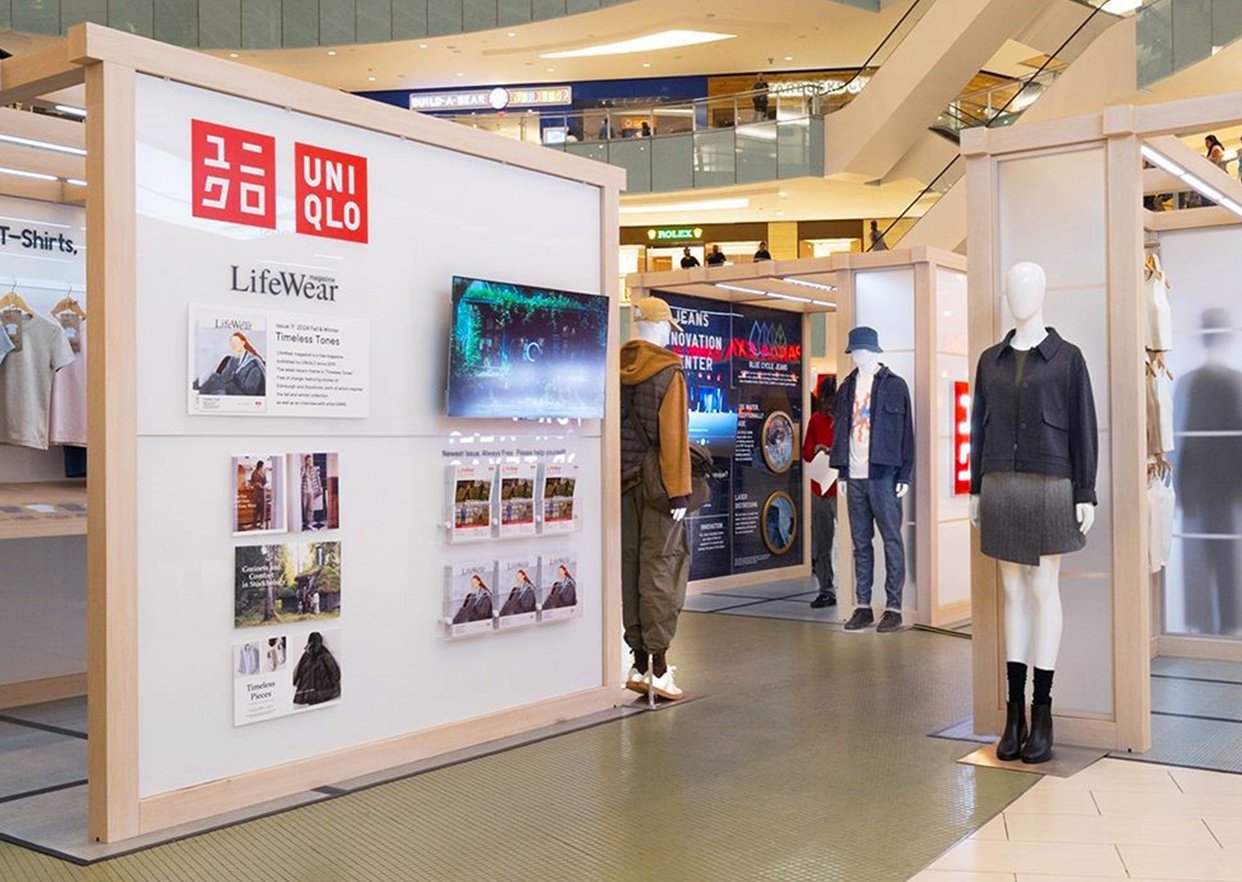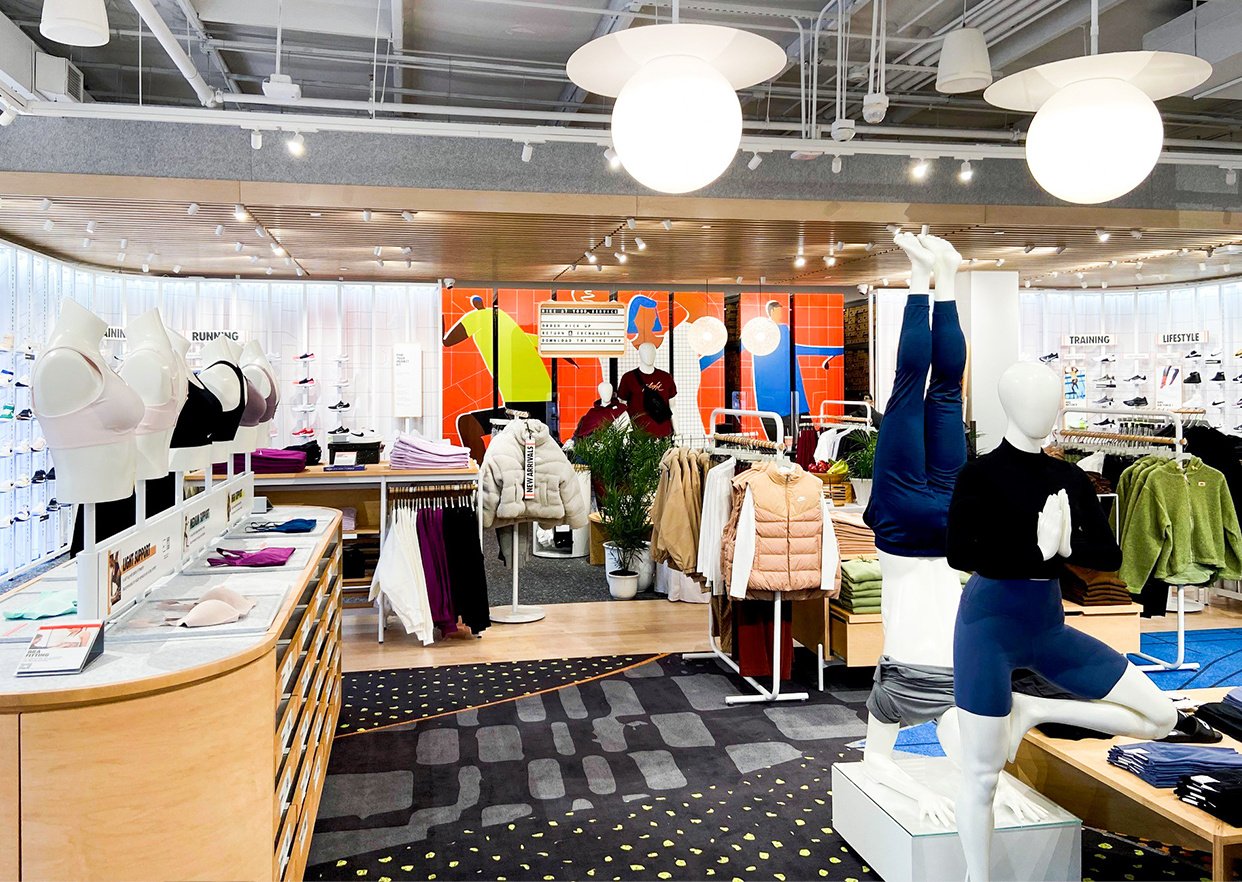Getting the right marketing materials installed in every store is a common challenge
Success in brick-and-mortar retailing is driven by the quality of the in-store experience. To win at the point of sale, retailers need to provide consumers with a consistent brand image and an engaging shopping environment.
Unfortunately, as the number of stores increases, it becomes harder to manage that in-store experience.
Stores are rarely the exact same size and shape – or serve the exact same customer segments – making it difficult to keep in-store marketing materials current everywhere at all times.
Worse yet, corporate generally can’t “see” what is (or isn’t) being done in each store to curate those in-store marketing materials. Along the way, the brand strays and the customer experience suffers.
Taylor, a leading provider of retail signs and graphics and visual merchandising solutions of all types, wanted to document the current pain points and best practices of U.S. retailers in today’s marketplace.
We hired an independent research firm to survey a random sample of 225 marketing leaders. All of those surveyed represented large multi-store U.S. retail organizations, all were manager level or higher, and all had direct influence over the retailer’s in-store marketing practices.
The study’s margin of error is +/- 6.5% at the 95% confidence level.
Here are the top 13 takeaways:
Retailers need better technology to get things done in stores
83% of retailers use “technology” to deliver in-store marketing campaigns… but email and Google Docs are the most common tools used.
Creating retail marketing materials is often slow and inefficient
25% of retailers say an extreme amount of time/labor is needed to create just one round of marketing materials.
Artwork and approvals are problematic
Just 52% of retailers have a method to effectively track and approve artwork.
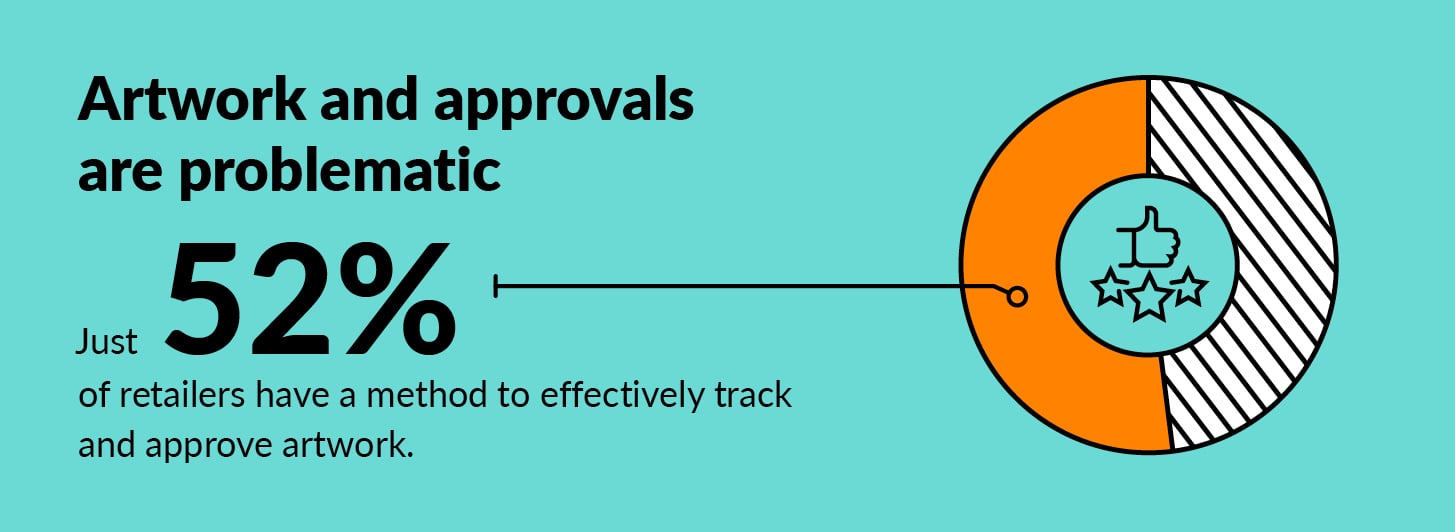
Communication and variability are sources of pain
The two biggest in-store material pain points?
1) Communication between store managers and corporate
2) Different stores need different materials
Most enable control of quantities at the store level
58% of retailers say store managers have the ability to announce when they need more or less of any item.
No two stores are exactly alike
The different needs individual stores have for in-store materials:
1) Quantities
2) Sizes of materials produced
3) Graphic design
Learn more about Taylor's Retail solutions
Store-specific kitting remains a concern
Only 42% of retailers can very quickly determine what marketing kits and quantities are needed for stores.
Most enable control of quantities at the store level
58% of retailers say store managers have the ability to announce when they need more or less of any item.
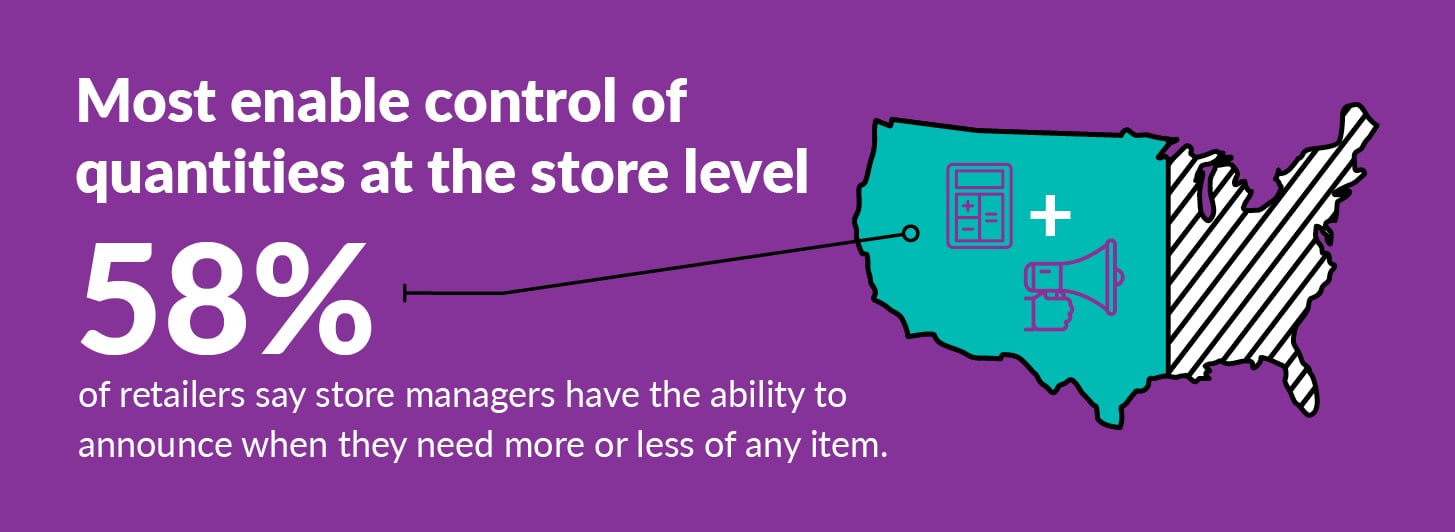
Shipping costs are a substantial source of waste
72% of retailers need to ship in-store marketing materials at least weekly.
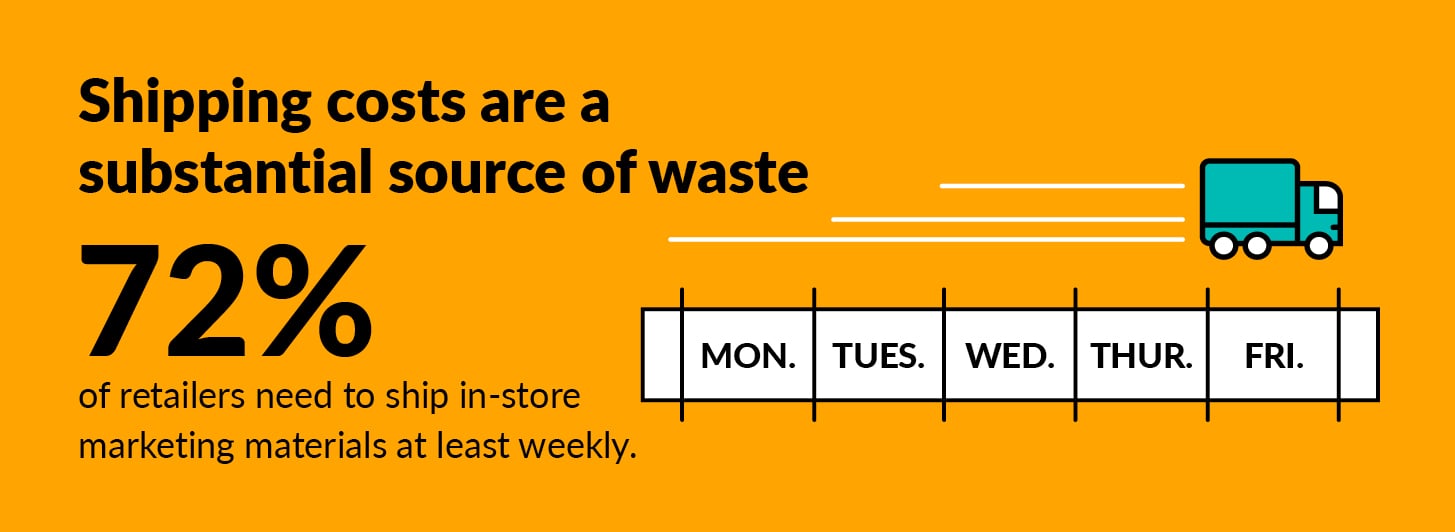
Signage installation compliance is hit or miss
Less than 50% of retailers have a process to ensure proper installation (compliance) of the marketing materials at each location.
In-store teams benefit from marketing campaign guidance
85% of retailers provide a “guide” to in-store management so that stores know exactly where all of the materials are meant to be placed.
Download a report infographic to share with colleagues
In-store managers would welcome mobile-enabled control
56% of retailers say it would be very helpful to allow in-store managers the ability to make quantity/variation changes in real time, via mobile app, which would then automatically update the master database.
Online audit capabilities would be a helpful addition
58% of retailers say it would be extremely helpful to have online audit/compliance capabilities for every location.
Driving the Evolution of Bricks-and-Mortar Retail Marketing
Taylor's in-store marketing programs can help you slash waste from the execution of your retail campaigns while enabling store-specific marketing control.
.jpg?width=1200&height=600&name=Colateral%20TrendCandy%20Deliverables_Blog%20Hero%20Image%20(1).jpg)

